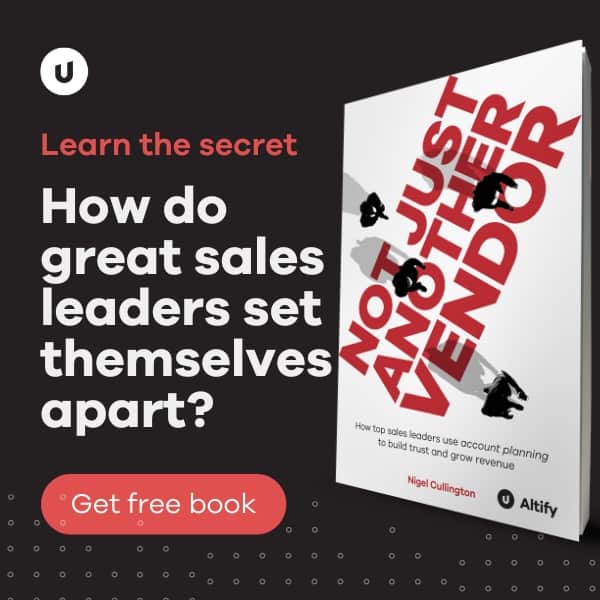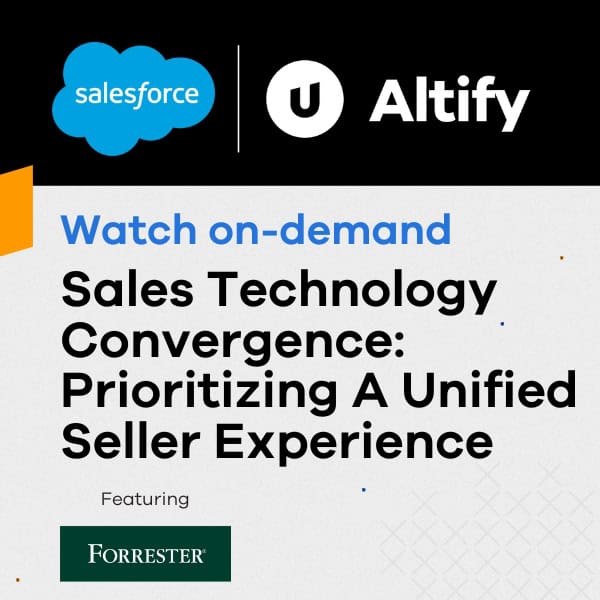…There was a time, long, long ago in a dim and distant past when, if you were in sales, the company you worked for and the product you sold were more important than how you personally sold. You may remember the ‘No one gets fired for buying IBM’ adage. Buying from a market leader was often seen as the obvious (and safest) path for a buyer to take.
But the world has moved on. Established companies are being disrupted. Remember Kodak? Did we ever think we would see Microsoft’s dominance of the desktop challenged? What about the decline of Nokia and Blackberry?
In the past, buyers were informed by large companies with large marketing budgets and usually made their selection from a shortlist of the market leaders. That has changed.
We have all witnessed the democratization of information. As buyers become ever smarter (more knowledgeable really), they have more options available to them, and, contrary to some recent theories, the importance of the salesperson has increased. How you sell is much more important that what you sell – and the effectiveness of how you sell is determined solely by your credibility in front of the buyer.
If you, as the salesperson, can’t demonstrate credibility when meeting with your buyer, you will fail. It is as stark as that. It is the reason why senior executives (in the buying organization) take follow-up sales meeting in just 25% of cases.
Remember, the impact on a customer of a bad buying decision is usually greater than the impact on a sales person of a lost deal.
Here are 5 sales credibility killers you need to avoid:
Better than your own solutions, you need to know your customer. That requires a deep understanding of the challenges that face each of the key roles in the customer organization (in the area that you can impact). Only then can you offer a solution to meet those needs. Unless you can show that you understand the impact on the customer of the project they are contemplating then it is hard to position your product as a solution that will optimize the outcome.
It used to be the case that your job as a seller was to communicate the value of your product. Now, if you have a half-decent website, the buyer can educate themselves on your product (and can do the same with your competitors) so you better show up with something better that demonstrates how you can uniquely create, not just communicate, value. If you start the conversation with “Let me tell you about our products”, your credibility will be shot, right out of the gate. Instead, accelerate your credibility by bringing market insights to your customer.
Marketing works hard to produce product datasheets, presentations and solution overviews. If you lead your sales conversations with these materials you will likely be categorized as a non-value-adding vendor. But the better marketing departments also deliver “vendor agnostic” insight pieces that, when used correctly, change sales conversations with buyers by disrupting current thinking and bringing new perspectives that lead back to your solution. Start there and then use the product-focused materials when the customer asks for more information.
Gone are the days where sellers can just knock on the door of the corner office and close a deal. In a world of increasing complexity, today’s buyers are much more aware of the need to operationalize changes in their organizations. That typically requires the support and expertise of many players. Asking for the order, without addressing the needs of each of these individuals, and helping them to understand the internal relationships between those needs, will likely underline the fact that you don’t understand how their business works. Your job is to help them build consensus around their interdependent needs.
If there is one way to ensure you have a sub-zero credibility rating with your buyer, ask the dreaded question. Let’s imagine you have a meeting with a senior influencer in the buyer’s organization. She has taken time out of her busy day because she has a business problem she is trying to solve. She is hoping that you can provide some guidance. And then you make that fatal mistake. You open the conversation with “So, tell me about your business. What keeps you up at night?” There is no way back from here. You must know about her business, have a good sense of the problems she faces, and what keeps her awake at night. You should have ideas to share, experiences that you have gleaned from other similar companies, or expertise you from your colleagues or experts in your own company.
Credibility and its co-traveler trust are the most valuable currencies you have. They are hard to earn and must be spent wisely.
Have I missed any credibility landmines? Are their horror stories you’ve heard or witnessed? What other mis-steps should sales people avoid?
[Disclosure: The TAS Group has a particular interest in this area and we are privileged to work with progressive sales and marketing organizations to solve this problem in a scalable way using Dealmaker Align.]



